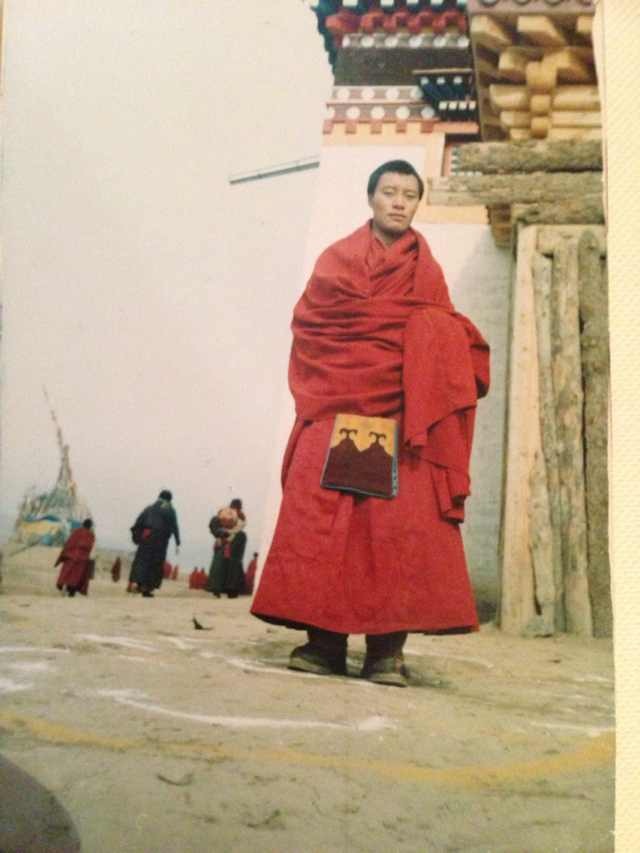Jigme Gyaltsen, 21, was a monk at Rongwo Monastery in Rebkong (Ch: Tongren) County in Malho (Ch: Huangnan) Tibetan Autonomous Prefecture, Qinghai Province. He joined Rebkong Monastery at 14. He was born in Kangtsa Village in Yadzi (Ch: Xunhua) County in Tsoshar (Ch: Haidong) Prefecture, Qinghai Province. Jigme Gyaltsen fled Tibet so that he could continue his religious studies in India, and to share the story of his friend and roommate Jamyang Palden, who passed away on 16 September 2012, six months after his self-immolation protest. Jigme Gyaltsen escaped Tibet in September 2012, travelling for one month and 22 days to reach India on 26 December 2012. He speaks to TCHRD:
“On 9 March 2012, Jamyang Palden, my roommate at Rongwo Monastery, set himself ablaze at Dolma Square near our monastery. Minutes after the self-immolation, monks took Jamyang Palden to a secure place in the monastery so that he would not get into the hands of the Chinese police. He was treated at the monastery for some months getting injections on his foot every month. There was not much hope for his survival as most of his body had burnt beyond treatment. Monks took turns to take care of him. He could not talk much and his voice was low. He could not eat much, just some diluted Tsampa porridge and kept saying, ‘My wishes are not fulfilled.’

